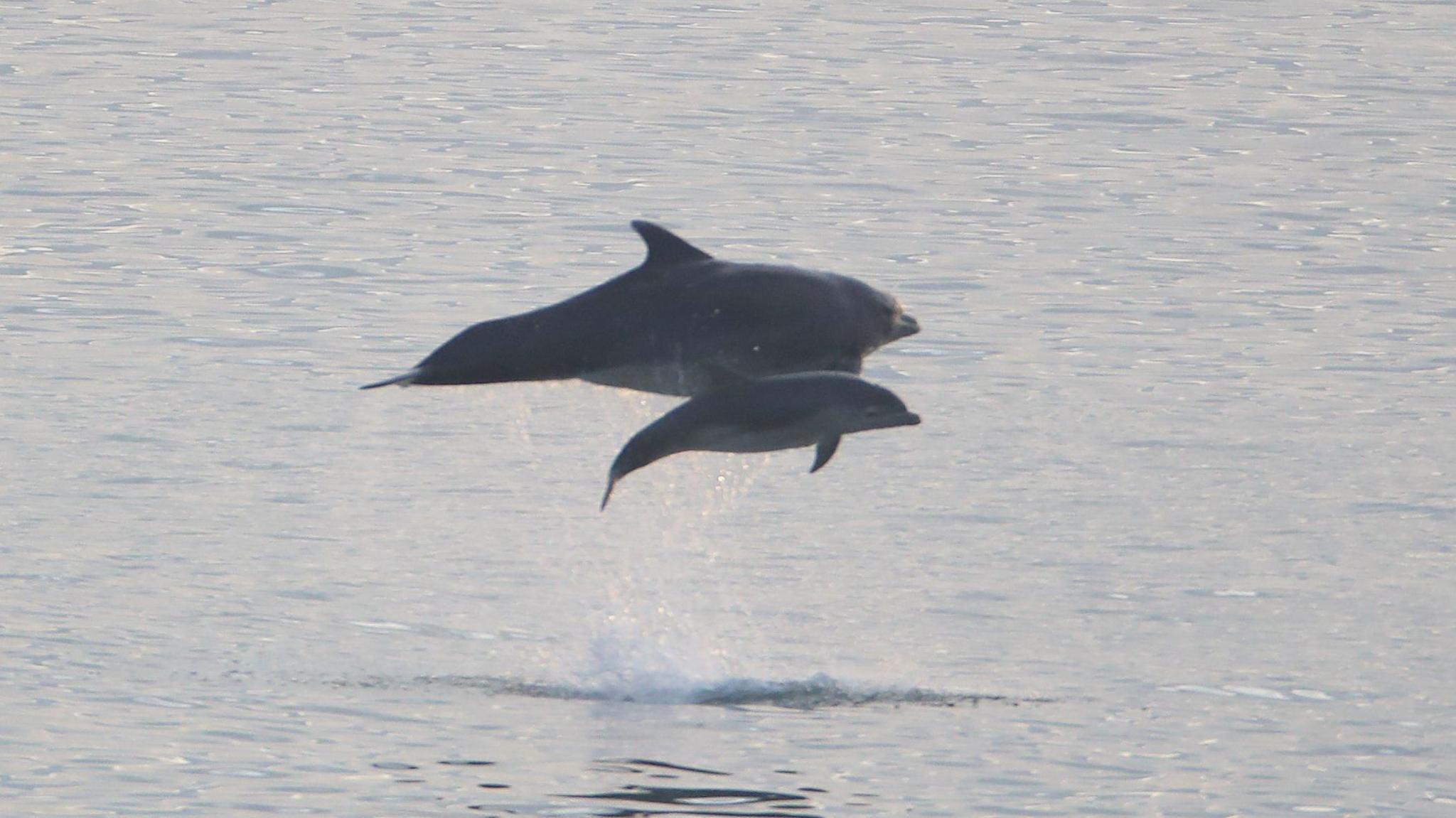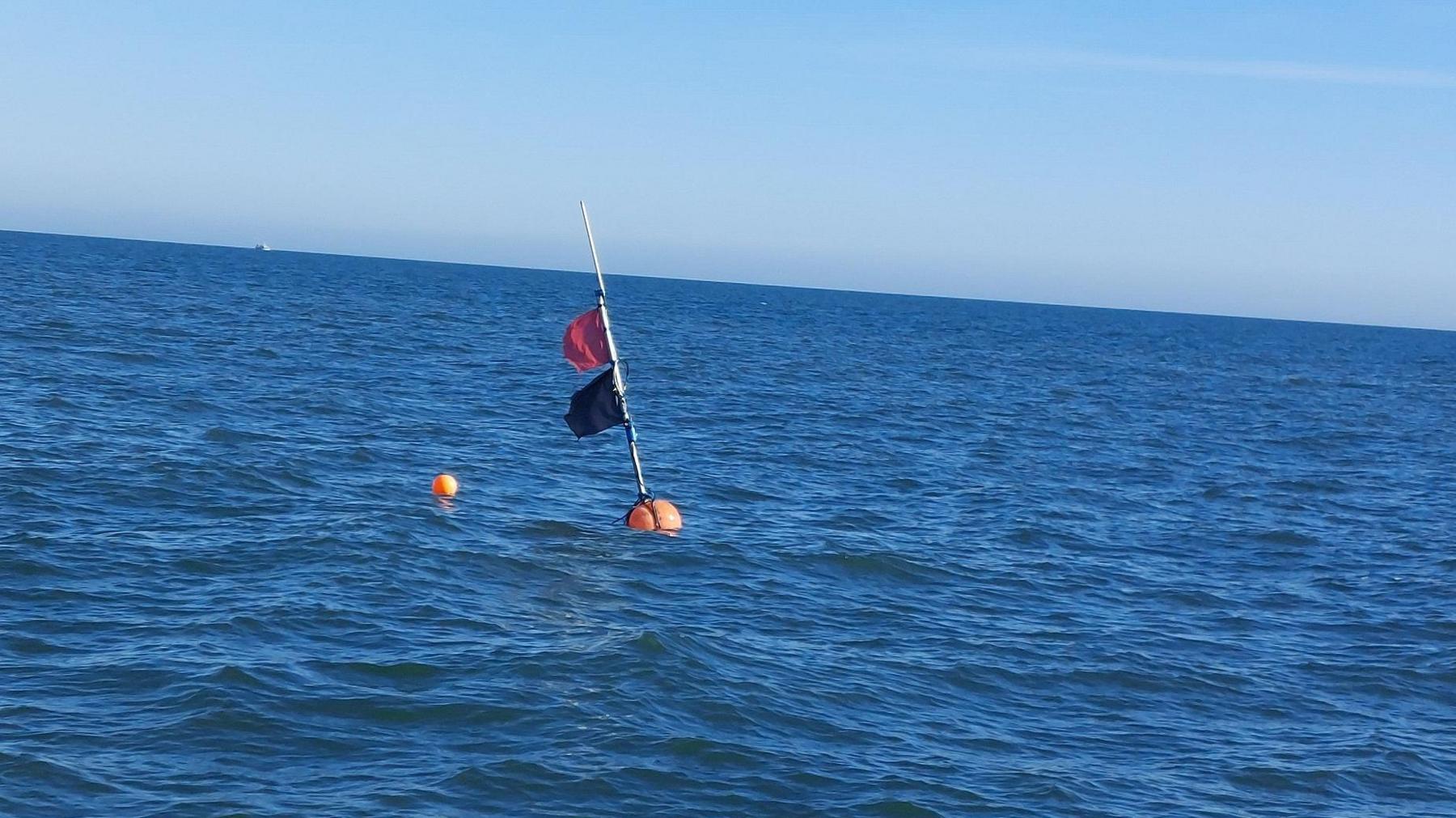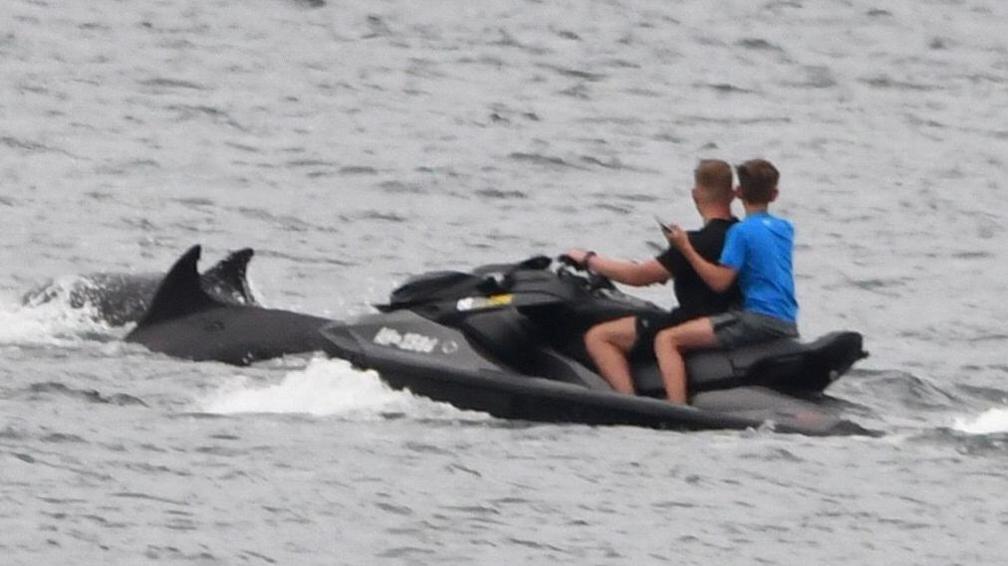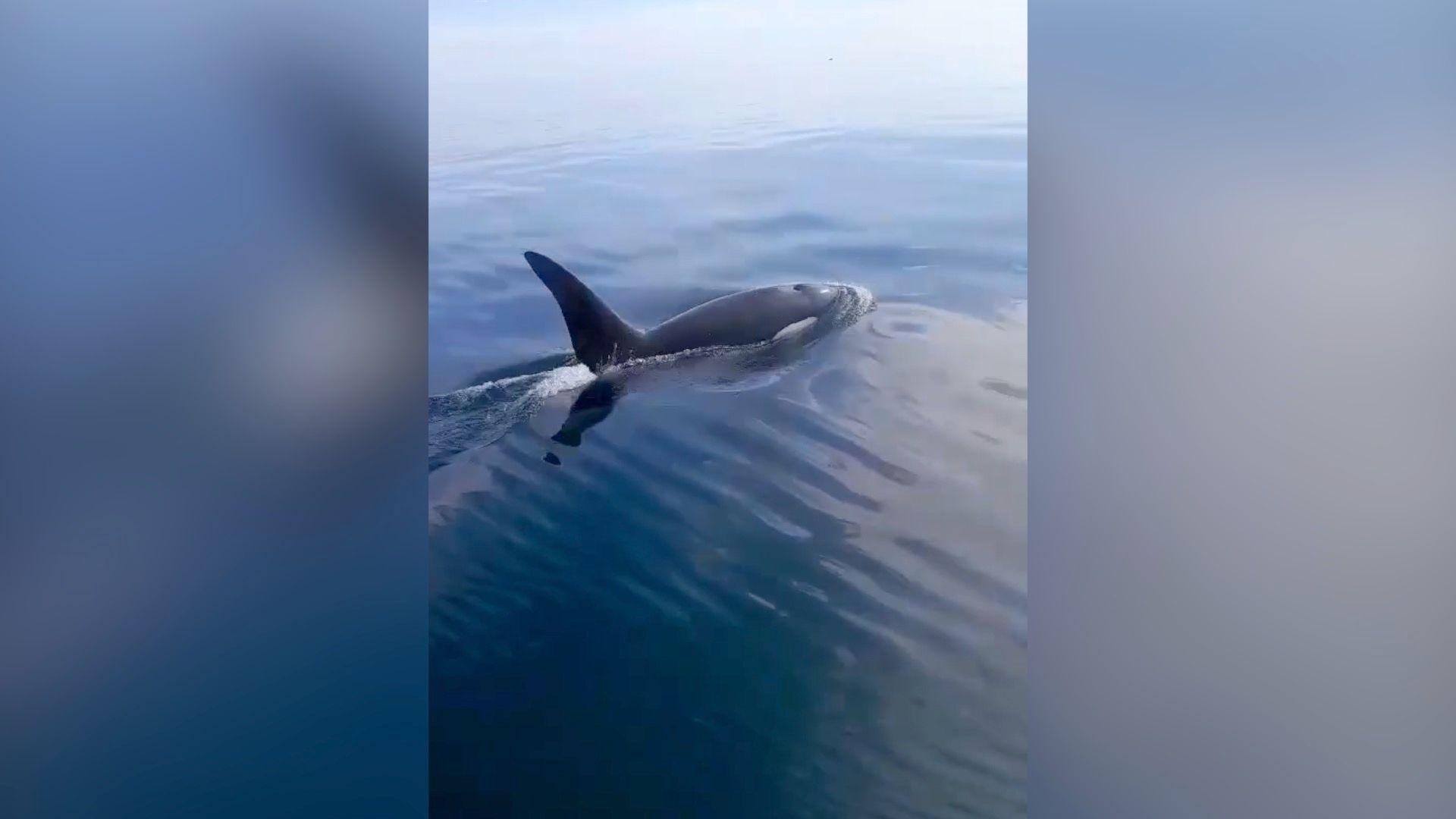Scientists seek to make live dolphin tracker

The scientists are focusing on bottlenose dolphins
- Published
Scientists are developing a live dolphin detection system which can be attached to a buoy.
Prof Jeff Neasham at Newcastle University and his team are developing the technology off the coast at Blyth and Cambois, in Northumberland.
They hope the live detection system will help those in the offshore construction industry, such as those building wind farms, "modify" their behaviour when dolphins are near.
The scientists are working with a local dolphin spotting group to determine if their new system is accurate or not.
The team are focusing their efforts on tracking bottlenose dolphins.

The dolphin tracker is attached to a buoy and is out at sea
Dolphins could currently be monitored in the sea by the sounds they made, Prof Neasham said, but the processing of the data usually had to be done onshore and so could not provide live tracking.
He said it was "challenging" to do this type of processing live because it meant it had to be done on a small device out at sea.
"You need to discriminate dolphin clicks from all the other sounds that are out there," he said.
The data is then broadcast via radio signals back to shore.
Other live dolphin tracking systems existed but they were usually connected to ports and hardwired, said Prof Neasham. However, his team's systems can be out at sea for months, simply attached to a buoy.
'Signature whistles'
The team are working with Newbiggin-by-the-Sea Dolphin Watch to see if their data corresponds to what locals are seeing.
"We see someone reporting a pod heading north from Seaton Sluice then about half an hour later, we detect it on our system," he said.
Their system cannot yet track individual dolphins, but Prof Neasham said in the next few months the team hoped to introduce a dolphin whistle monitor to the sea.
Dolphins have "signature whistles", he said, and so it may be "possible to start tracking individuals by that".
Follow BBC North East on X, external, Facebook, external, Nextdoor and Instagram, external.
Get in touch
Do you have a story suggestion for BBC Tyne?
Related topics
More stories from BBC North East and Cumbria
- Published6 August 2024

- Published30 April
